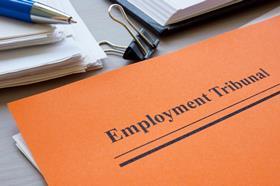A senior lawyer at the Government Legal Department was entitled to an extra payment of £1,500 despite being on a career break when the award was made, an employment tribunal has found.

Bev Gleeson, who joined the GLD in 2004, was on a six-month career break when the department made a £1,500 payment to its staff. During her break, she was not paid or expected to work but would still be under some obligations to the deparment, the tribunal heard. Employment judge Singh’s written reasons said Gleeson had sought the career break to care ‘for individuals who have disabilities’.
The announcement about the £1,500, ‘in recognition of the pressures felt during the 2022-23 pay year’, was made through a briefing email in June 2023. The email said those on career breaks on 31 March 2023 or due to be on one on 31 July 2023 were not eligible.
However the tribunal found the decision to exclude those on a career break had no lawful basis.
The judgment said ‘no consideration’ had been given to the impact of the decision on protected characteristics and there was ‘no evidence about how the decision to exclude career breaks has been reached’. It added that the department 'has not thought about what the makeup of that excluded class could be and, if they have protected characteristics, what impact the decision to exclude them has'.
Read more
Referring to the wording in the email which said the payment was ‘in recognition of the pressures felt during the 2022/23 pay year’, Singh, sitting with two other panel members, said: ‘We found that anyone who had worked during that period would believe the payment was being paid for services carried out during that financial year and that if they had worked in that period, they would receive it.
Finding that anyone on a career break was still ‘in post’ the tribunal found the payment was properly payable to Gleeson and she should be paid the £1,500.
The tribunal also found, based on the figures provided to it, that there was a ‘significant and substantial’ difference between men and women taking career breaks and therefore Gleeson’s claim for indirect sex discrimination claim succeeded.
A further claim of indirect associative disability discrimination failed and was dismissed.
This article is now closed for comment.































11 Readers' comments